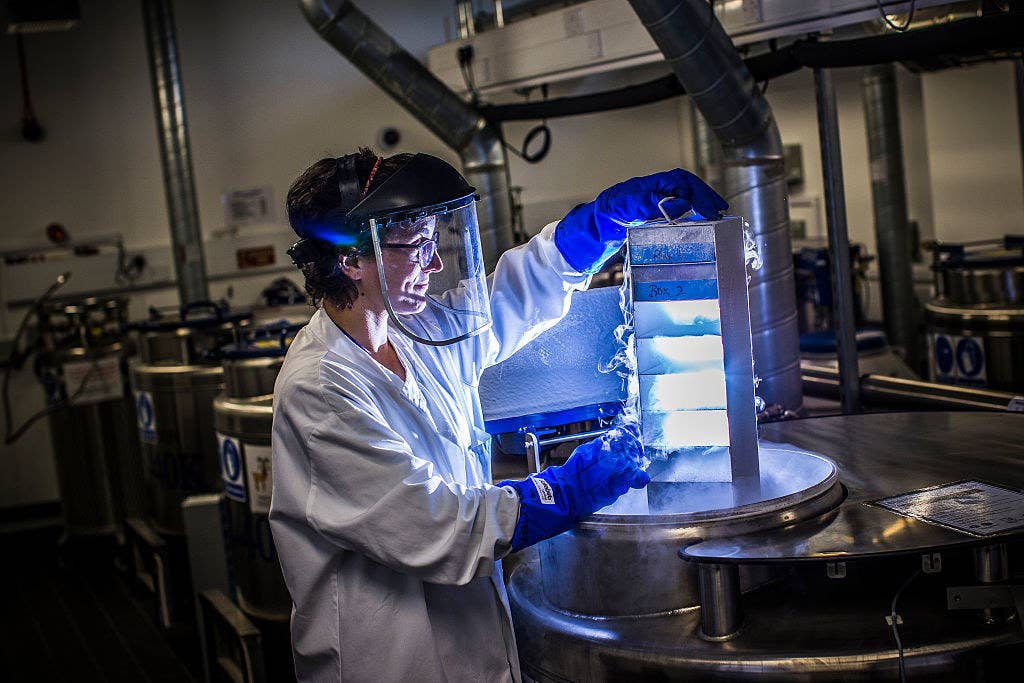
Last week, the government announced an extra £2 billion in funding for research and development in the UK by 2020, equivalent to an increase in the current budget of around 20%.
It was welcomed by learned societies and the science lobby, with Sarah Main, director of the Campaign for Science and Engineering, calling it “a considerable vote of confidence in science”.
“It's pretty much unprecedented,” Kieron Flanagan, senior lecturer in science and technology policy at the University of Manchester, told BuzzFeed News.
“It looks like it's genuinely new money, and it's very much oriented towards technology rather than basic science or curiosity-driven research, which is the right thing for the country, because that's where the gap is in the UK,” he said.
However, the announcement comes at a time of huge uncertainty for British science following the EU referendum. Most scientists supported remaining within the EU, and fear losing access to funding and collaborators once Britain leaves.
It is unclear if the increase in funding is supposed to be a replacement for the huge sum of money – approximately £1 billion – that the UK wins in grants from European programmes each year. Some in the science community say that while it will mitigate the potential loss, it won’t come close to replacing what they stand to lose.
“The EU is the UK’s innovation ecosystem,” Angela Mathis, chief executive of Edinburgh-based mathematics innovation company ThinkTank Maths, told BuzzFeed News. She says research and development is not just about “accessing cash” , but “being part of thinking, sharing hubs, having access to smart ideas and trusted people”.
The government has suggested that the UK should begin to collaborate more globally, rather than with the EU, but “it will take UK research at least a few decades to replace the 40-year-old trusted relationships we currently have within EU,” said Mathis.
The funding boost has not allayed fears of brain drain – or concerns that scientists from outside the UK will no longer been drawn here. Pressure group Scientists for EU told BuzzFeed News that the mobility of scientists as a workforce means that they can vote with their feet more easily than others can, and that the UK should do more to attract talented researchers.
“It's not just ‘if you open the door, they will come in,’” said Mike Galsworthy, programme director for Scientists for EU. “You have to attract researchers to what your science community and country is doing, overall, its cultural and its social makeup, its ambitions.”
“As a scientist, constantly you have an eye on if there is a job happening somewhere else,” said Rob Davidson, co-founder of Scientists for EU. “You know loads of people that have moved countries, you are almost a citizen of nowhere. You know that you're going to have to move, because you've got niche skills and you're overspecialised for most things.”

While the outcomes of negotiations on key issues for scientists, including access to European collaboration as well as free movement of researchers, will be key in shaping the future of science research in the UK, the £2 billion increase in funding for technology could also mark a shift in the government’s priorities.
Flanagan said that the funding boost will reverse a trend of declining investment in the development of new technology that started in the 1970s, when both the government and private industry started to cut back. “You had a strange situation where both government and industry are backing away from funding technological research and development (R&D),” he said. “At some stage you'd have to hope that someone would blink and be the first to reverse that, and obviously government has decided to do that.”
Challenge-oriented research, often referred to as R&D, is driven by economic or social priorities, for example developing medicines we need or developing technology to help us deal with climate change, whereas basic science, often called investigator-driven research, is driven by what scientists themselves choose to research, and doesn’t necessarily have an immediate real-world application.
The UK has a world-leading reputation in basic science research, but that doesn’t magically translate into being great at developing new technologies. “The UK maybe in a way fell for the myth that technologies spring automatically out of science, whereas they generally don't, so you have to invest in technology as well as science,” said Flanagan.
“Really the reason why we fund leading-edge science is not for the results, it's because it's the best way to get leading-edge scientists and engineers, so it produces the human resources and the human capacity, but it doesn't by itself deliver the technology.
“It's very important, and it would be insane to run it down, but by itself it's not a wealth-creating activity. We've been trying to buy economic growth on the cheap by funding investigator-driven science.”
It remains to be seen exactly what technologies will be funded with this new money – the Autumn Statement said the decision-making process will be “evidence-based” but, as Flanagan points out, “by definition there's no evidence for future technology”.
“There's an irreducible political element to choosing to invest in, say, self-driving cars over geoengineering, climate-mitigation technologies, so picking one rather than the other is a political choice in the end,” he said. “It's not a scientific or a technological choice, it's about what kind of future world we want to live in.”

Since the EU referendum, scientists have voiced concerns that Brexit will be bad for scientific research in the UK.
Last month, BuzzFeed News spoke to three scientists who have left or who plan to leave the UK after the result of the EU referendum. They cited various reasons, including more science investment elsewhere, an opportunity to maintain collaborations with European colleagues more easily, and the anti-immigration sentiment they’ve seen in the UK.
Andrew Steele, a computational biologist at the Francis Crick Institute in London and chair of campaigning group Science Is Vital, told BuzzFeed News that he thinks that investing heavily in science “would definitely make the UK a more attractive place” for scientists. “But at the end of the day you need to feel welcome on a personal level too,” he added.
“A lot of Europeans I speak to feel like a majority of the UK population don't want them here. I don't think that's necessarily true, but it's a reputational mountain we have to climb when it comes to attracting the top scientists from around the world.”
David Robinson, a metrology expert who runs Surrey-based research consultancy Psi-tran, started a petition in July calling for the UK to retain access to EU research and development programmes after Brexit. He told BuzzFeed News the extra funding was “a very good step in the right direction”. But the ideal situation, Robinson said, would still be to retain access to EU funding and collaborations, alongside this new money.
“Of course it's not an absolute given that we'd lose all access to European research funding once we leave the EU,” said Flanagan. “It does depend on what the relationship is. It would be very good for the UK to remain involved in the European programmes and to pay in to remain involved, because the kinds of collaborations that are possible through EU programmes are different from the ones that you can do nationally, so it's complementary.”
In a speech in July this year, science minister Jo Johnson said that "this government, now more than ever, will play its part in ensuring that the UK continues to be a place for great minds to come together from Europe and from all over the world to build knowledge, understanding, and better solutions to our shared global challenge."
